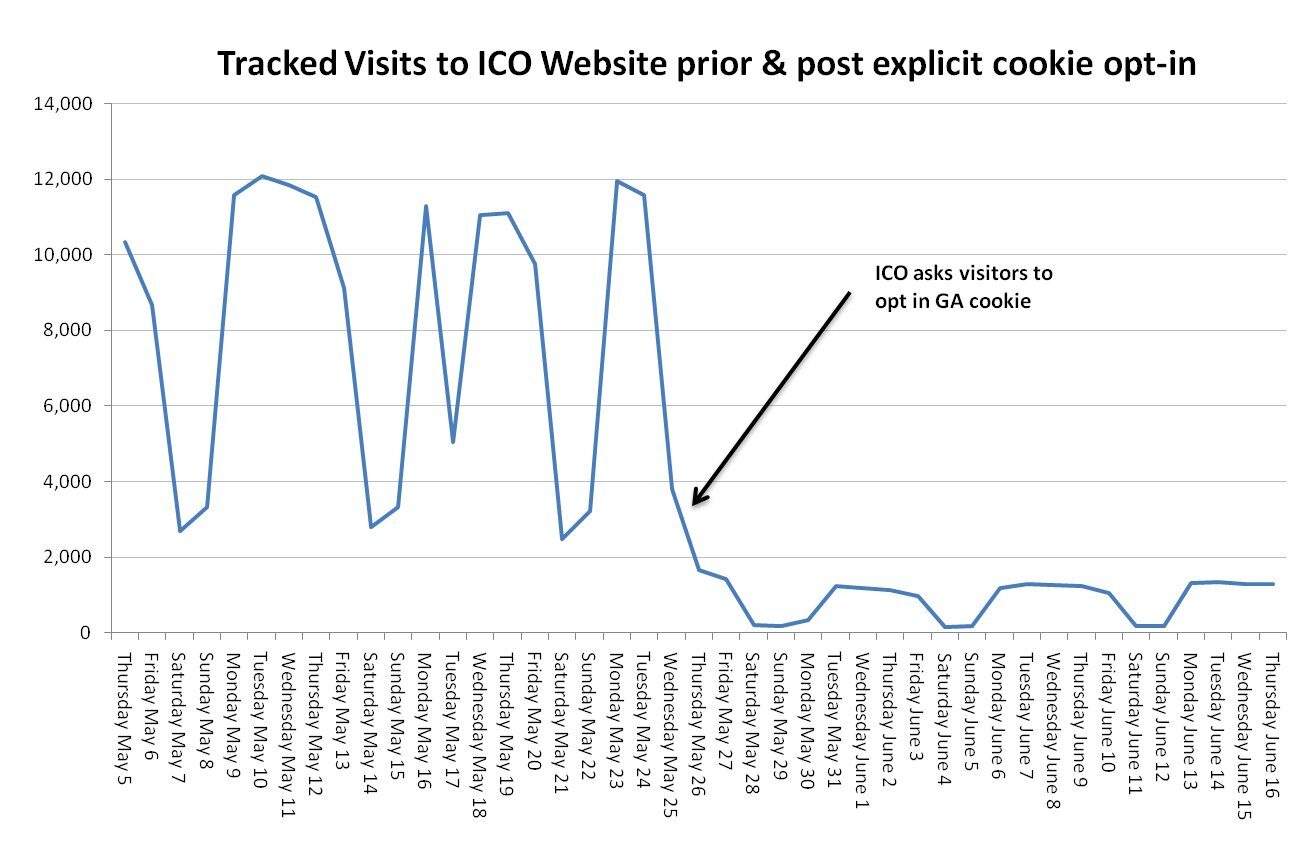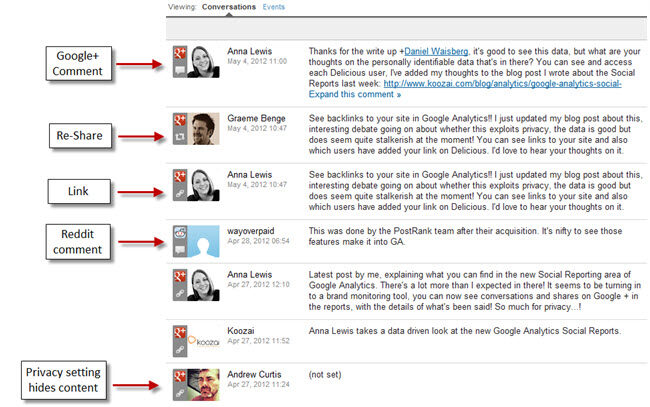There have been a lot of discussions about online privacy recently, from those of us who work in the online world to newsrooms and parliaments. I want to take a look at what really matters to people when they’re online and highlight a few areas that are often overlooked.
Specifically, I’m looking at the cookie law (and flaws for webmasters), Google’s Privacy Policy (and flaws for users), and also some useful tips to help you understand things better (or see where Google’s got it wrong!).
Here comes the cookie monster!
The EU Cookie Law is now in full swing following the end of the cooling off period in May. I studied the guidelines in depth and the main point I could conclude was that they didn’t actually know what would be acceptable. The reason for this law seems to be to help users understand that websites use cookies, what they are and that sometimes they can be harmful. However, it is very rare to come across harmful cookies; in fact many are essential to enable visitors to use the website successfully. Some are used simply to track activity; this data can then be used to improve functionality or target advertising at individual visitors more specifically.
I have found that this law has highlighted to general internet users that they are always being tracked when they’re browsing online, something that worries a lot of people.
According to a study on Econsultancy , 89% of consumers think the EU Cookie Law is a positive step, although 75% of consumers had not heard of the privacy directive until they were surveyed.
At times I’ve wanted to shout from the roof tops that you’re not being stalked! The data is to improve your online experience.
This may come from my passion for web analytics, but at the same time, I strongly believe everyone needs to stop worrying and get a bit of perspective. However, I do think some marketers have let everyone down by showing too many remarketing adverts and spamming people with these rather than using them subtly.
If you’re running a remarketing or retargeting campaign, please please please make sure you change the frequency settings from the default to just a few times, otherwise you risk ruining it for everyone.
But retargeting is nothing new…
Did you know that since credit cards were introduced, every purchase you have ever made has been tracked? From what you bought to where you bought it. This data is then sold on and targeted direct mail arrives through your door. How does that compare to visiting a shop online and then seeing their adverts as you browse other sites after that?
Is your doorstep less intrusive than your browser?
I asked this question to see what people preferred; I didn’t go into the depths of what people think about cookies and the new law (that’s a long questionnaire I’m saving for a rainy day!), but from the one quick question we have learnt that people either like their adverts online or not at all:
Where would you prefer to see adverts that are specifically targeted to you?
| Number of votes | Percentage of votes | |
| Doorstep (direct mail in the post) | 0 | 0% |
| Online (display advertising on websites) | 15 | 68% |
| None, I hate personalised adverts | 7 | 32% |
It seems nobody likes direct mail and would prefer to see their advertising online. However, a significant number of people also hate personalised advertising.
Where do we stand?!
Online advertising is a huge market and cookies are paramount to targeting the adverts to the end users accurately. This provides both a better return for the advertiser and a better online experience for users as they won’t see completely unrelated adverts while they’re browsing; but as I mentioned above, sometimes retargeting just gets on peoples nerves!
So, as an advocate for collecting data online and as someone who uses web data on a daily basis, I was pleased that the EU Cookie Law compliance in the UK now allows assumed instead of compulsory ‘opt in’. However, I am still very worried about how badly the EU have handled this and how many people will want to say no to cookies following this farce. The lack of clear information available to users regarding cookies and their potential benefits is helping to create misconceptions about data theft and malware threats, which could lead to a high opt-out rate and a significant loss of data.
It’s like (not provided) all over again!
This graph shows the data collected on the Information Commissioner’s Office (ICO) website after they implemented their ‘assumed opt out please opt in’ cookie solution:
(Image Source: http://www.flickr.com/photos/vickyb/5859873960/)
This clearly shows that asking users to actively opt in to cookies in this way is not going to be successful. Losing this data stops you knowing which pages of your site people enter on, which ones people spend longest on, which achieve the highest conversion rate and so much more about users’ interaction on your site. Such valuable data, gone!
Furthermore, a massive blow to come off the back of this is the announcement last week that Internet Explorer 10 will have ‘Do Not Track’ turned on by default. This means that up to 60% of your traffic (depending on the type of users you attract) will most likely be untrackable.
EDIT: Luckily, 60% of your data won’t be untrackable because of the IE10 Do Not Track. Data will only be lost if you choose for your website to co-operate with this, so it’s up to you whether you lose the data or not. Thank you Malcolm Coles for pointing this out.
It’s a shame, one of the biggest reasons why I love working online is that almost everything you do can be measured. Removing data gathered by cookies (and Google showing not provided instead of keywords) starts taking us backwards and closer to traditional advertising that is so much harder to measure the success of.
Google are trying to improve privacy?
Google now encrypts the search results for logged in users, meaning organic keyword data cannot be passed on to tools that track this information. Firefox have changed their default search box to show encrypted results and more and more keywords are coming through as (not provided) in tools such as Google Analytics.
This is to improve users Privacy, according to Google. However, advertisers spending money on AdWords are still able to see the keyword data, meaning that either your privacy is not important enough to prevent data being passed to advertisers or Google do not think SEO is a marketing method that requires keyword knowledge.
But wait, Google are also screwing with privacy!
So while the (not provided) and cookie controversy was going on, Google threw in a reason for users to start being worried about their data online. Tools like Google Analytics do not permit the collection of personally identifiable information, meaning you have nothing to worry about. However, Google updated their Privacy Policy in March to cover all their services under one policy and enable them to share data across their services.
The new Social reports can show you the user names of people who have interacted with your websites content across the Google services, like so:
They are getting around their ‘personally identifiable information’ guidelines because they are not showing the users activity on the website, it’s the users activity on their properties that they’re showing you. However, as I’m used to not seeing anything about the actual person in Google Analytics I was very surprised to see usernames and avatars here.
So how much data does Google have?
This new report led me to wonder about how much Google can actually stalk general users and it turns out they know quite a lot!
At SMX London, during the Google+ify or Die session, Bas van den Beld pointed out that Google knows your other usernames and log ins. Part of the way they can do this, is by piecing together the data they have across their services, but also:
- Google can reach over 80% of internet users on their advertising platforms
- Around 70% of websites have some kind of Google code on
So, the big Google monster is likely to know a lot about you. I have been asked by a few people recently whether they should stop using Google products but I had to conclude that although it’s not pleasant to think that Google knows so much about you, it also knows that much about most internet users and everyone’s in the same boat. Now, the fact that everyone’s in the same situation doesn’t make it right, but I think it is hard to work in the online world without benefiting from some kind of Google service.
What to do?
So now that I’ve had my little rant about losing data and the big Google monster, I want to show you a few things you can do to save data and understand the connections that Google knows about you.
To handle (not provided):
- Look at your Landing Page report to see the share of different keyword groups that you’re missing
- Create an advanced segment to show only (not provided) and one to exclude (not provided) and compare the results
- Use Webmaster Tools to see keywords with impressions and clicks (make sure you filter to show only web results)
View your social connections, as seen by Google:
http://www.google.com/s2/search/social#gd
See who Google thinks you are:
https://www.google.com/ads/preferences/
But although Google knows a lot, it still isn’t clever enough to realise that I, a 25 year old woman, am not a 65 year old man!
I’d be interested to hear your thoughts on online privacy, cookies, (not provided) and everything controversial that’s going on around this. How much is SEO going to be impacted by these changes? Only time will tell…
Tags: cookies, privacy, Web Analytics







